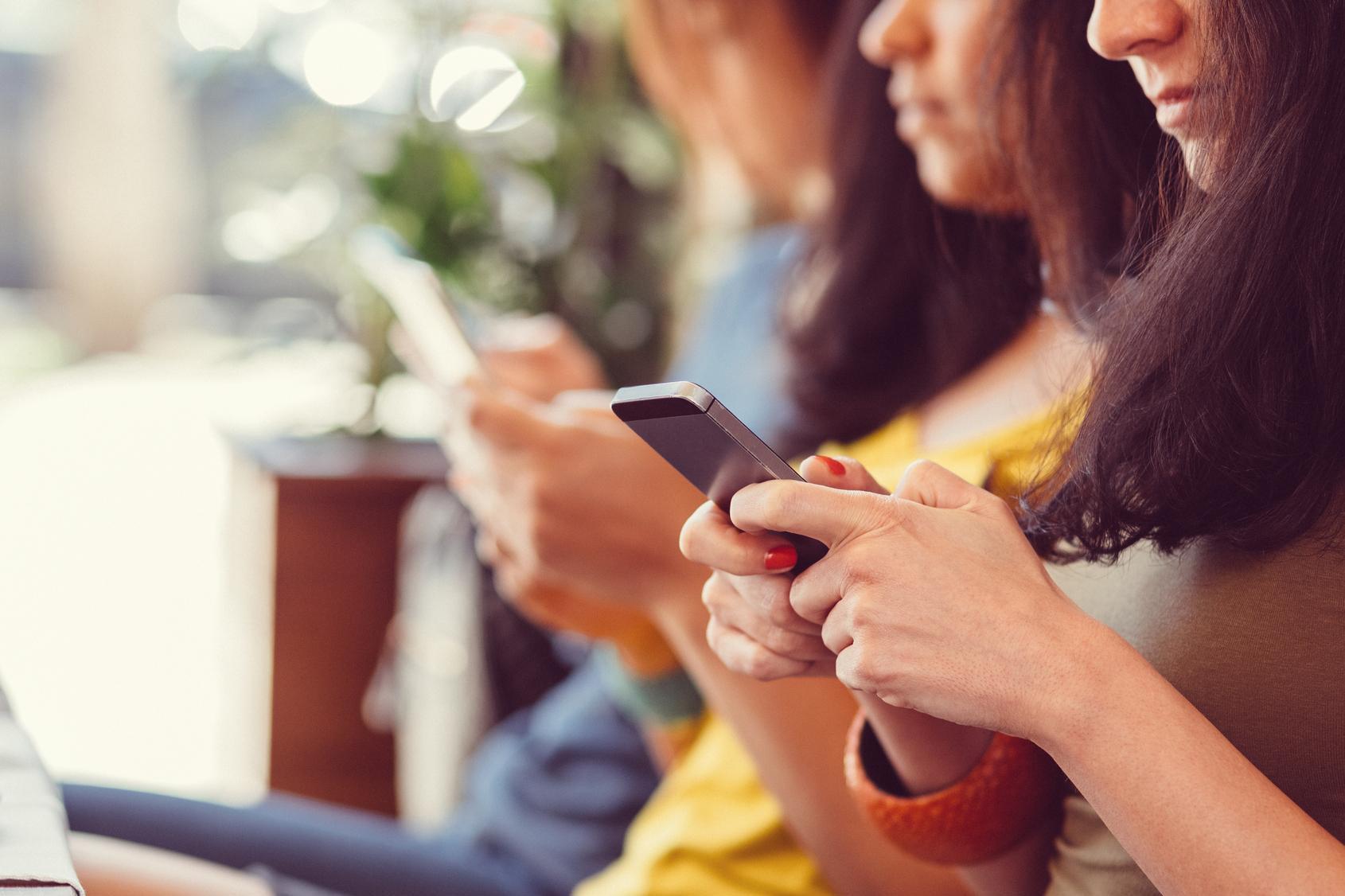Users fear social media is making them ill, but they still can't stop
Some 90 per cent of 18 to 29-year-olds now own a smartphone

Your support helps us to tell the story
From reproductive rights to climate change to Big Tech, The Independent is on the ground when the story is developing. Whether it's investigating the financials of Elon Musk's pro-Trump PAC or producing our latest documentary, 'The A Word', which shines a light on the American women fighting for reproductive rights, we know how important it is to parse out the facts from the messaging.
At such a critical moment in US history, we need reporters on the ground. Your donation allows us to keep sending journalists to speak to both sides of the story.
The Independent is trusted by Americans across the entire political spectrum. And unlike many other quality news outlets, we choose not to lock Americans out of our reporting and analysis with paywalls. We believe quality journalism should be available to everyone, paid for by those who can afford it.
Your support makes all the difference.Nearly half of millennials fear their addiction to social media is having a negative effect on their mental and physical health.
A new survey by the American Psychological Association (APA) found about 90 per cent of people aged 18-29 were using social media, up from just 12 per cent in 2005.
The APA report said: “Technology has improved life for many Americans, and nearly half of this country’s adults say they can’t imagine life without their smartphones.
“The survey showed, nearly all adults (99 per cent) own at least one electronic device (including a television). Almost nine in 10 (86 per cent) own a computer, 74 per cent own an internet-connected smartphone and 55 per cent own a tablet.
“At the same time, numerous studies have described consequences of technology use, including negative impacts on physical and mental health.”
Of the social media platforms, Facebook was the most frequently visited with 79 per cent on adults using it last year.
In second place was Instagram with 32 per cent, then Pinterest and LinkedIn, both on 29 per cent, and Twitter with 24 per cent.
Many millennials, defined as those aged between 18 and 37, were concerned about how much time they were spending on social media.
“Almost half (48 per cent) worry about the negative effects of social media on their physical and mental health," the report said.
The researchers also identified a group of people so attached to their gadgets that they were constantly or often checking their emails, texts or social media accounts.
APA said: “More than a decade after the emergence of smartphones, Facebook and Twitter, a profile is emerging of the 'constant checker'. Such avid technology and social media use has paved the way for the 'constant checker', those who constantly check their emails, texts or social media accounts.”
These ‘constant checkers’ reported higher stress levels than their less-connected peers.
On a 10-point scale, with one being little or no stress and 10 being a great deal of stress, this group reported overall stress levels of 5.3 compared to an average of 4.4.
The report said: “For some, constant checking itself can be a stressful act. Constant checkers are more likely to say that constantly checking devices is a stressful aspect of technology, compared to non-constant checkers (29 per cent vs. 24 per cent, respectively).”
The turbulent political climate in America, following Donald Trump’s shock victory in the US presidential election in November, was cited as a worrying factor online.
Some 42 per cent of ‘constant checkers’ reported the political and cultural discussions on social media caused them stress, compared to 33 per cent of non-constant checkers.
Some 65 per cent of Americans agreed that periodically “unplugging” or taking a “digital detox” was important.
Despite the majority wanting to switch-off, the report added: “Only 28 per cent of those agree about the important of a detox actually report doing so.”
Join our commenting forum
Join thought-provoking conversations, follow other Independent readers and see their replies
Comments